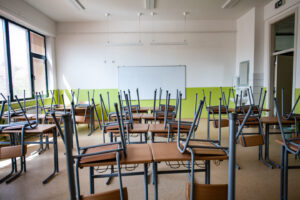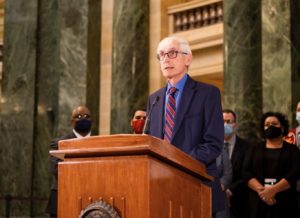Madison schools ask for more then $600M against declining enrollment
(The Center Square) – The Madison school district wants voters to approve a pair of referendums worth more than $600 million on the Nov. 5 ballot despite the school district’s dropping…

(The Center Square) – The Madison school district wants voters to approve a pair of referendums worth more than $600 million on the Nov. 5 ballot despite the school district’s dropping enrollment.
The ask comes as the Madison Metropolitan School District had a $39 million deficit in this year’s budget after the pandemic funds and previous referendum it was using to pay teachers have run out. Last school year, the federal COVID-19 funds were used to pay 111 educators while reserves were used to pay an 8% increase in wages for teachers and school staff, according to Wisconsin Policy Forum.
The referendum asks for a cumulative $100 million in operational funding over four years. The second referendum asks for $507 million over 23 years to build new schools. The district has 26 school buildings that are more than 60 years old, it says.
The referendum will be paid for with increased property taxes for residents.
If passed, the referendum would increase the property tax bill of a resident with a home assessed at $350,000 an additional $241.50 in the first year, $733.99 in the second year, $895.10 in the third year and $1,053.24 in the fourth year.
State levy limits cap the amount a school district can increase taxes without a referendum.
The ask comes on the backdrop of declining enrollment from 27,028 students in 2013-14 to 25,139 in 2022-23. And then a slight uptick of 56 students in 2023-24.
School enrollment projections show that number expected to drop to less than 23,000 students by the 2027-28 school year.
Declining kindergarten enrollment, birth rates and population estimates in the city show that the enrollment is expected to continue to decline after 2028.
The school district received $350 million from a 2020 referendum.
“Over the past 25 years, Madison voters have approved seven referenda to increase the district’s operating budget and rejected only one, making it a tool that district leaders are likely to use to help close the gap while protecting students and staff,” Wisconsin Policy Forum said. “Yet the rippling consequences of another operating referendum would also affect property taxpayers and could put downward pressure on state aid in future years.”
Will Flanders, an education expert at the Wisconsin Institute for Law and Liberty, told The Center Square in June that the $507 million request for new school buildings is the second largest referendum in the history of the state.



